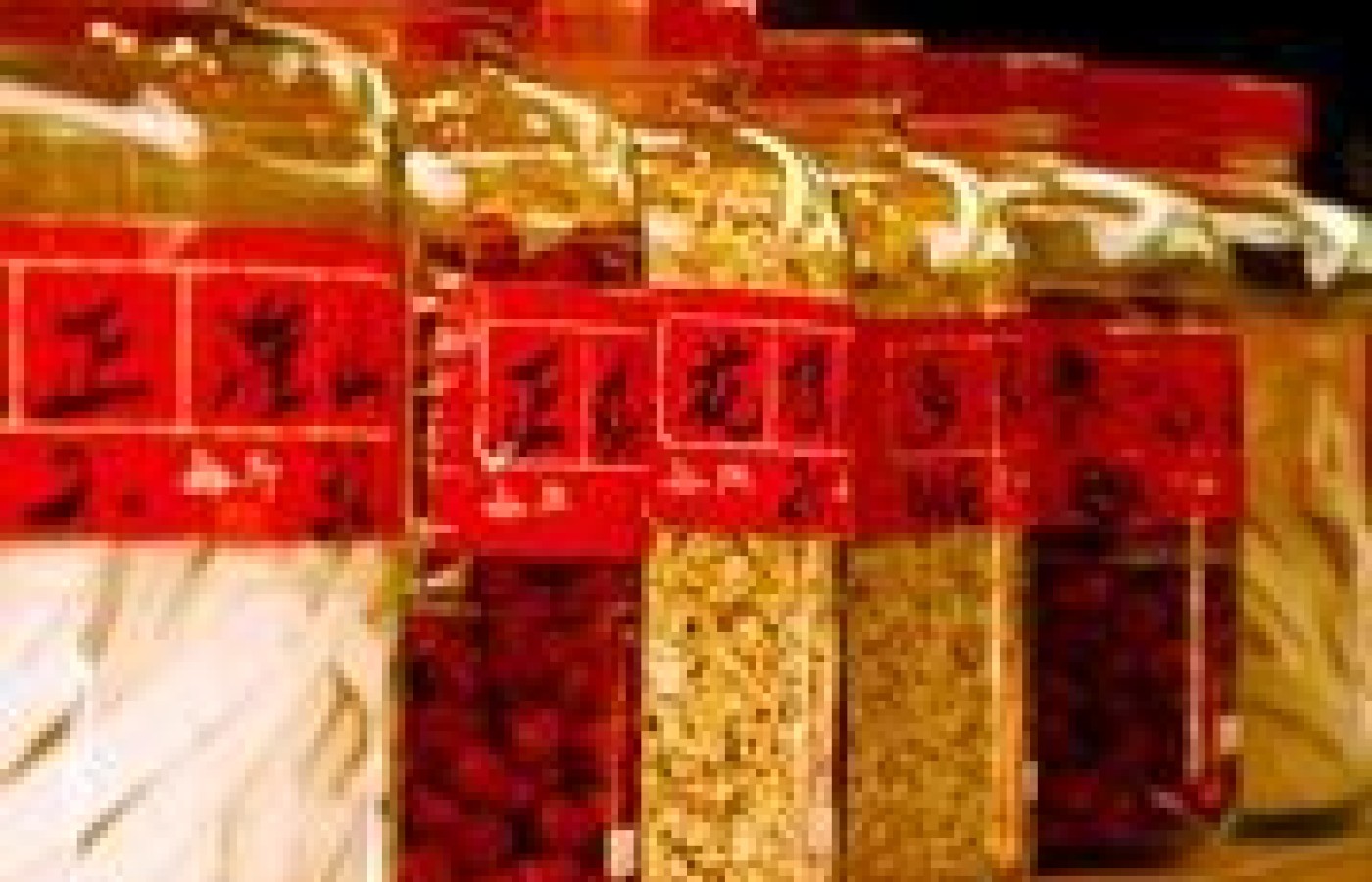The most important relationship I seek to nurture in the treatment room is the one a patient has with their own body. We live in a culture that teaches us to override pain, defer to outside authority, and push through discomfort. Patients often arrive hoping I can “fix” them, but the truth is, we can’t do the work for them. We can offer guidance, insight and support, but healing requires their full participation.
Final Rule on GMPs for Dietary Supplements Pending
It's sometimes difficult to grasp the totality of an issue that has been brewing for years. Currents of change might sway things one way, and then another. What once seemed so clear-cut can appear blurry and those once in agreement might end up standing on opposite sides of the issues at hand. This appears to be the case within the acupuncture and Oriental medicine community, as different groups have camped out on opposite sides of the impending Food and Drug Administration (FDA) Final Rule, titled Current Good Manufacturing Practice in Manufacturing, Packing or Holding Dietary Ingredients and Dietary Supplements (GMPs).
The Proposed Rule for GMPs has been under discussion since 1995, when herbal trade associations began working with the FDA to develop GMPs for dietary supplements. On Feb. 13, 2003, the proposed rule was published in the Federal Register and the FDA opened, then extended, the comment period until Aug. 11, 2003. The Proposed Rule then went to the Office of Management and Budget for review - where it's been since August 2003 - and finally was released on May 8, 2007. The FDA currently is preparing to publish the Final Rule in the Federal Register when complete. The divisive issue appears to be whether individual herbal practitioners and those operating college pharmacies will be considered exempt from the guidelines in the Proposed Rule.

On May 4, 2007, the AAAOM issued a position paper on the topic, stating: "Only herb manufacturers and distributors have to comply with GMPs, not AOM practitioners or school pharmacies, who obtain herb supplies from them. Therefore, we believe the new GMPs can be reasonably and fairly applied. The proposed GMPs state that herbal importing companies must demonstrate through Thin Layer Chromatograph (TLC) that every lot of herbs they are buying and selling is the correct species of animal, vegetable or mineral. Thus, the burden of correct species identification currently exists and is borne by the herb manufacturer or distributor, not by the individual practitioner."
The AAAOM also stated: "Following these guidelines should impose no added burden on schools or individual practitioners. The current GMPs already require levels of sanitation, precise identification and appropriate record keeping when a 'new' custom herb prescription is compounded or manufactured." The paper also advises, "This recommendation is intended to improve patient confidence in using custom Chinese herb prescriptions by complying with the old and new FDA GMPs. By complying with these appropriate FDA requirements we can continue to engage with the FDA and provide guidance to them."
However, there are others in the Oriental medicine community who believe the Final Rule could cause significant problems for AOM practitioners and college pharmacies. The Council of Colleges of Acupuncture and Oriental Medicine (CCAOM) interprets the proposed rule as not exempting individual herbalists and college herbal pharmacies. CCAOM President Lixin Huang was concerned enough about this issue to send a letter to the Office of Management and Budget on Feb. 28, 2007, to express its concerns regarding key issues within the Proposed Rule. The CCAOM also made a presentation at the recent AAAOM Expo and Conference in New Orleans regarding potential compliance issues for colleges.
Mark McKenzie, MOM, LAc, Dipl. Ac/CH, interim chair of the CCAOM Herbal Committee, stated the council's concerns:
"The Council's letter noted that FDA's cursory reference to herbalist practitioners: 1) lumped all herbalists together without specifically distinguishing state licensed AOM practitioners, as opposed to unlicensed herbalists; 2) did not specifically address the issue of whether compounding of an herb by a licensed AOM practitioner, either onsite in his/her private practice or onsite in an AOM academic institution, solely for the purpose of dispensing the herb to a patient at that clinic, would actually affect interstate commerce; 3) did not address whether the application of CGMP standards in private or AOM college clinics would have the economic effect of substantially eliminating one of the key forms of therapy for a licensed health care profession whose scope of practice in over 21 states includes the use of Chinese herbs; and 4) did not address the significant adverse impact that may result from substantially eliminating the ability of teaching clinics, which are charged by their institutional mission and by their U.S. Department of Education recognized programmatic accreditor (ACAOM), to teach students the skills of Chinese herbal prescribing as part of a professional training program."
McKenzie also stated that "the Council's letter urged that the FDA should clarify that the proposed regulations do not apply to licensed acupuncturists who compound Chinese herbal preparations in an academic or private clinical setting as part of their scope of practice under state law solely for the purpose of dispensing those herbs to a patient in that clinical setting."
The council hopes that "an alternative system, which would require much forethought and possibly AOM working groups with FDA, should protect the consumer, include procedures for herb traceability and provide FDA with an acceptable comfort level ... the Council, through its Herbal Committee, is interested in exploring strategic options in concert with other national AOM organizations."
According to David Kailin, PhD, MPH, LAc, the current AAAOM position does not jibe with the previous statements made when the initial comment period opened in 2003. "I have not found evidence that suggests national professional associations representing acupuncture and Oriental medicine were closely engaged in this rulemaking process from 1995 to mid-2003," said Dr. Kailin. "The Acupuncture and Oriental Medicine Alliance (AOMA) submitted a page and a half of comments to the FDA, dated July 28, 2003, and requested the exemption of individual herbalist practitioners. The Acupuncture Association of Washington made a similar request in their letter of Aug. 6, 2003. By way of contrast, the American Herbal Products Association (AHPA) submitted substantive comments running over 60 pages in length. AHPA also requested exemption of individual herbal practitioners."
On May 18, 2007, the AAAOM issued an additional response to its members regarding the GMPs. It reads in part:
"Many of you have contacted us with concerns and questions about our position, including some state acupuncture associations seeking to advise their members. We understand everyone's confusion, because there has been a lot of conflicting, and in some cases, alarming statements being made on the Internet about how these regulations may affect herbal practitioners.
"These proposed regulations apply to manufacturers and distributors. They are not targeted toward individual AOM practitioners, who are not typically engaged in manufacturing. When finalized, some of the provisions in these proposed rules will apply to a practitioner if he or she is manufacturing a prescription for a patient out-of-state or for another practitioner's patient, or is manufacturing a prescription not intended for a specific patient. If a practitioner is making an out-of-state purchase, their supplier will need to comply with the GMPs.
"When these proposed regulations first came out in 2003, the Acupuncture and Oriental Medicine Alliance (AOM Alliance) and the American Association for Oriental Medicine (AAOM) sent comments to the FDA. In the four years since then, there have been many discussions with the FDA and others on these proposed GMPs. We expect that the final regulations will be issued soon. Until then, any new requirements in the proposed regulations are not in effect. There are likely to be significant changes to the new regulations when they are issued and we will review these carefully once they are made public.
"Dietary supplements are a multibillion dollar industry, of which only a very small percentage includes herbs, and only a small segment of the herbal market is served by TCM practitioners. The majority of our herb suppliers are from Japan, China and Taiwan, and most of these companies currently apply pharmaceutical-grade GMPs for TCM products. As a result, the FDA's proposed GMP guidelines on dietary supplements should not impose additional cost to these suppliers who are already in compliance with pharmaceutical GMPs. However, suppliers currently using lower quality ingredients and standards are likely to be affected."
Dr. Kailin wonders how the AAAOM can make this claim without backing it up with text from the Proposed Rule, or refuting citations that contradict their positions. "The resolution of the question rests on verifiable matters of fact that have been stated by the FDA in the Federal Register," he said. "Consider this quote (Federal Register, 3/13/03, p.12176): 'Therefore, we decline to exempt 'herbalist' practitioners who manufacture dietary ingredients and dietary supplements. Herbalist practitioners who introduce or deliver for introduction into interstate commerce, a dietary ingredient or dietary supplement, are manufacturers who must meet CGMPs.'"
"An herbal formula composed of products from other states or countries, thereby meets the FDA definition of an article introduced into interstate commerce, even if it is sold in only one state and sold to only one person. This is substantiated by FDA Compliance Policy Guide 7153.11." Kailin continues, "Individual herbalists are not exempt from the Proposed Rule. If the same stipulations are carried forth into the Final Rule, then those with in-office herbal pharmacies will face compliance costs that the FDA estimates at $62,000 in the first year (Federal Register, 3/13/03, p.12242, Table 16). This prohibitive cost will effectively terminate in-office herbal pharmacies. Practitioners may be able to serve patients by e-mailing or faxing individual herbal formulas to CGMP-compliant herbal pharmacies that provide custom compounding services."
Whether you take the view of the AAAOM or the CCAOM, the Final Rule will undoubtedly alter the herbal practices of the Oriental medicine community. It remains to be seen how the AOM community will adapt to these changes, as well as others that might come in the form of governmental regulations or guidelines. An issue such as this might bring up the larger question of whether the AOM community has the ability and means to aggressively track federal regulations and organize grassroots campaigns to stop or promote specific legislation. This certainly won't be the first or last time AOM will need to deal with the powers of the FDA. And, as all sides agree, some good will come from the higher standards proposed in this version of the GMPs. But will the good out weigh the bad? Only time and the published Final Rule will tell.
Resources
- Department of Health and Human Services, Food and Drug Administration, Current Good Manufacturing Practice in Manufacturing, Packing, or Holding Dietary Ingredients and Dietary Supplements. Federal Register, Volume 68, Number 49, March 13, 2003. www.cfsan.fda.gov/~lrd/fr030313.html.
- "AAAOM's Position Paper on the FDA's proposed regulations on Dietary Supplements Good Manufacturing Practices (GMPs)." AAAOM Press Room, May 4, 2007. www.aaaomonline.org/pressroom.
- "FDA's Good Manufacturing Practices (GMPs) for Dietary Supplements." AAAOM Press Room, May 18, 2007. www.aaaomonline.org/pressroom.
- "CCAOM Comment to Acupuncture Today Regarding FDA GMP Regulations." Submitted by Mark McKenzie, May 25, 2007.



